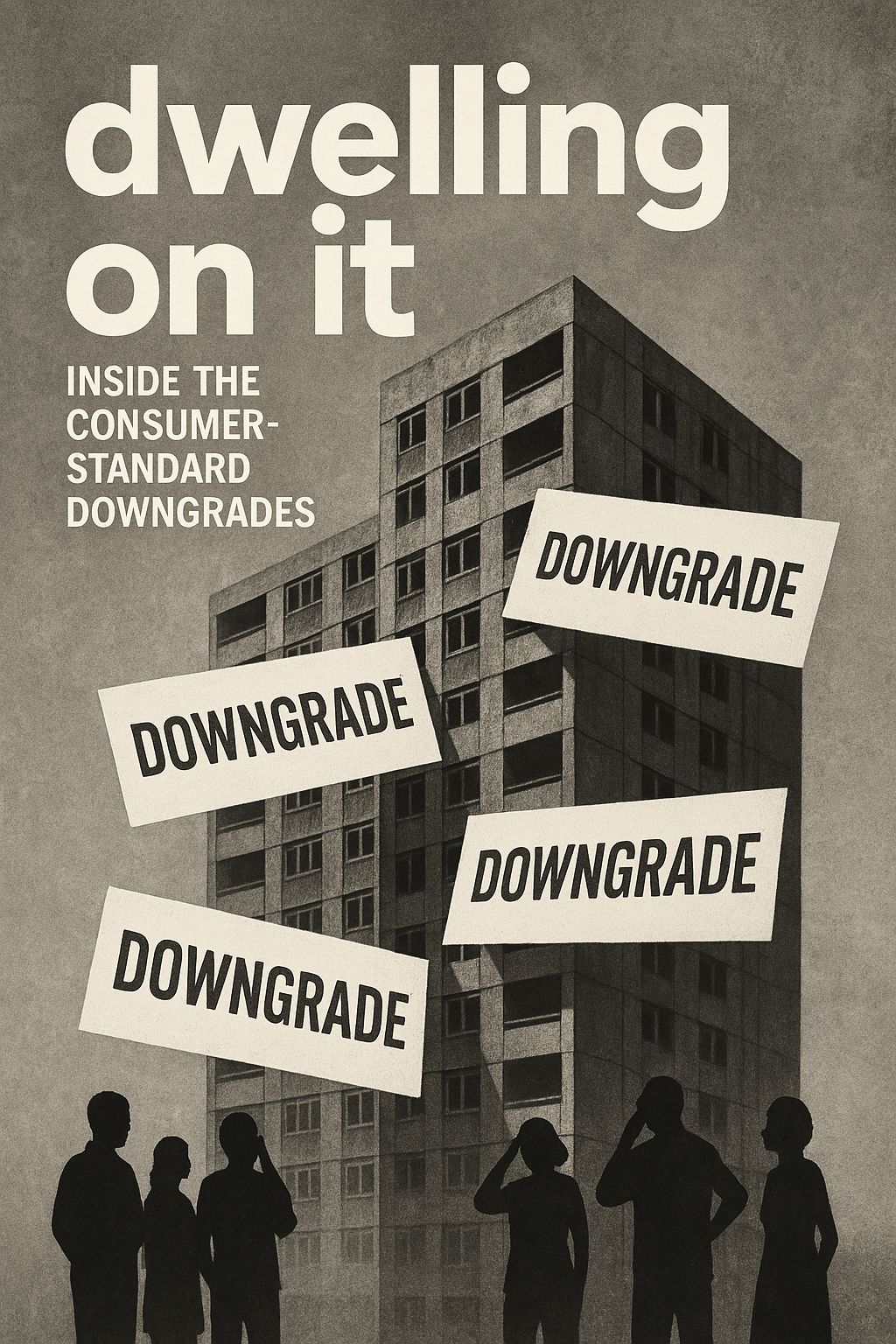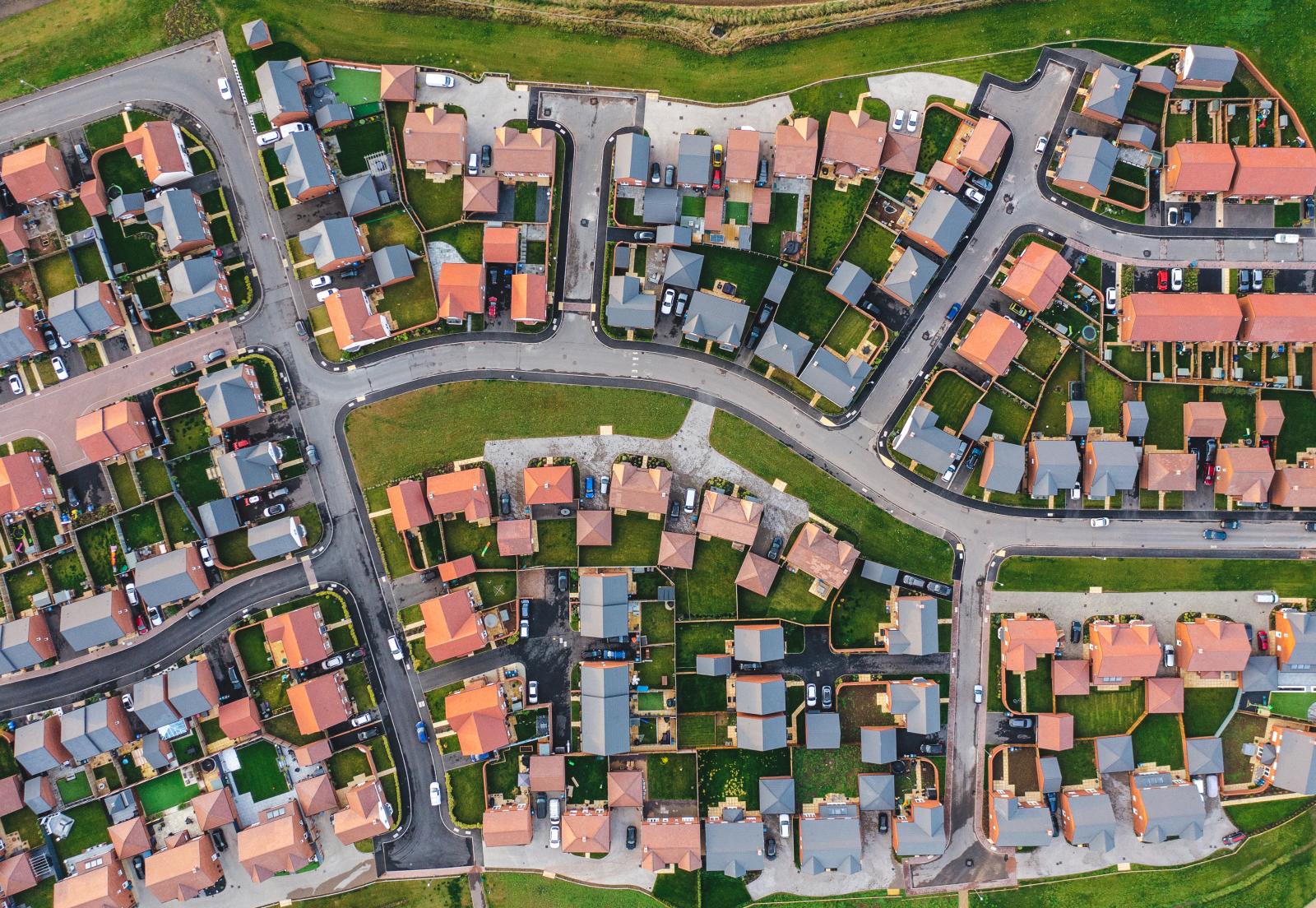- Dwelling On It
- Posts
- Inside the Consumer Standard Downgrades
Inside the Consumer Standard Downgrades
How 2025 Exposed Sector Wide Safety, Data & Governance Failures

A Year of Reckoning: How the New Consumer Standards Are Reshaping Landlord Performance
Fourteen months into the Regulator of Social Housing’s (RSH) proactive consumer inspection regime, the sector is experiencing a wave of downgrades that have exposed deep-rooted failures in safety compliance, data integrity, and governance. The 2025 regulatory landscape is defined by a sharp divide: while a handful of landlords have achieved the top C1 grade, many more have been downgraded to C2 or have crashed into non-compliance at C3. The evidence points to a sector-wide reckoning driven by the new regulatory focus on robust data, transparent governance, and tenant safety.
1. The C3 Collapse: Anatomy of Failure
The most severe downgrades C3, denoting non-compliance have consistently stemmed from asset-data blind spots that concealed overdue life-safety work. For example:
Anchor Hanover: Over a third of its stock lacked valid electrical installation condition reports (EICRs), with a significant remedial backlog. Weak asset data was flagged internally, and the regulator found insufficient evidence of a robust risk and control framework. Anchor’s consumer grade fell to C3, and its governance grade rapidly followed, dropping from G1 to G3 within four months.
Tower Hamlets: The council had 2,500 overdue fire actions (1,700 high-risk) and 750 water defects. Only 47% of homes had been surveyed in the last five years, leaving major risks invisible to leadership.
Brent: Discovered 12,500 fire risk assessment (FRA) actions wrongly marked as “closed” in its system, with failures in data reconciliation identified by internal audit.
Reading and Winchester: Both received C3s after pilot inspections revealed missing surveys, extensive safety backlogs, and weak tenant engagement.
In every case, data failures meant that board-level and executive assurances were based on incomplete or inaccurate information, leading to regulatory intervention once the true scale of the backlog was uncovered.
2. Data Governance Hot Spots
The RSH’s new regime has made it clear: if data integrity is weak, every line of assurance from executive to board to regulator fails in series. Common issues include:
“Closed” actions without evidence: Brent’s audit revealed thousands of fire actions marked as complete with no supporting documentation.
Survey confidence gaps: Tower Hamlets’ lack of up-to-date surveys left critical risks unmonitored.
Backlog inflation: Some landlords self-referred with major remedial backlogs but could not demonstrate effective clearance plans, resulting in C2 or C3 grades.
Governance slippage: Anchor’s inability to surface damp-and-mould data gaps triggered a simultaneous governance downgrade.
3. The Cost of Complacency
The financial and reputational consequences of regulatory downgrades are severe:
Direct recovery spend: Brent cited a £2.3 million compliance-recovery plan as a benchmark for the costs of rectifying failures.
Opportunity loss: Regulatory notices can jeopardise grant funding for new homes, choking off development pipelines.
Financing premium: Governance downgrades prompt lenders to re-price risk and tighten covenants, increasing long-term costs.
Reputational drag: High profile failures, such as Tower Hamlets’ fire safety backlog, have dominated local headlines, overshadowing positive initiatives.
In summary, fixing bad data costs millions; preventing it costs thousands.
4. Roadmap to C1: What Success Looks Like
In stark contrast, a small group of landlords have achieved the top C1 grade, demonstrating sector-leading practices:
Landlord | C1 Judgement Date | Key Practices Identified |
|---|---|---|
Watmos Community Homes | April 2025 | 100% property level surveys, tenant-led scrutiny, live risk dashboards, strong self-challenge culture |
City of Westminster Council | February 2025 | Effective systems for identifying/addressing issues, tenant engagement, robust oversight |
Barnsley MBC (Berneslai Homes) | Early 2025 | Independent assurance, strong safety compliance, culture of fairness and respect |
West Lancashire Borough Council | Early 2025 | Senior engagement, improvement planning, robust data |
South Liverpool Homes | April 2025 | SLH maintains accurate, individual property level records, updated via physical surveys. |
Poplar HARCA, Raven Housing Trust | 2025 | Strong tenant and community engagement |
Common themes among C1 landlords:
Granular stock intelligence: Up-to-date, property-level surveys and risk data.
Tenant engagement: Residents involved in scrutiny and decision-making.
Live risk dashboards: Real-time tracking of safety actions and compliance.
Culture of self-challenge: Internal audits escalate safety overruns rapidly to board level.
Robust governance: Clear oversight, realistic improvement plans, and accurate performance data.
5. Regulator’s Stance: Still Tightening
The RSH has signalled that accountability is being strengthened, with routine inspections now standard for all large landlords. Incomplete or inaccurate data is a top enforcement priority, and the regulator has warned that fines or emergency powers will be used where necessary. The inspection tempo and penalty ladder are expected to climb through 2026.
“Good governance is critical for delivering good services and keeping tenants safe in their homes. All landlords need to make sure they have strong governance and controls in place in order to have a better grasp of strategic risks.” — Kate Dodsworth, RSH
6. Analysis: C1 Downgrades and the Sector’s Trajectory
C1 grades remain rare only a handful of landlords have achieved this standard in 2025, while C2 and C3 downgrades are far more common. The data shows that:
C3 downgrades are consistently linked to failures in data integrity, leading to missed or hidden safety actions and, ultimately, governance collapse.
C2 grades are often assigned when landlords can identify issues but lack credible plans or pace for remedial action.
C1 grades are awarded where there is clear evidence of:
Comprehensive, accurate data on homes and safety compliance.
Proactive identification and resolution of issues.
Strong tenant engagement and transparent governance.
A demonstrable track record of improvement and self-awareness.
The regulatory bar for C1 is high: it requires not just compliance, but a culture of transparency, continual improvement, and tenant-centric governance. The sector’s challenge is clear—move from reactive, data-poor assurance to proactive, data-rich management, or face escalating regulatory and financial consequences.


